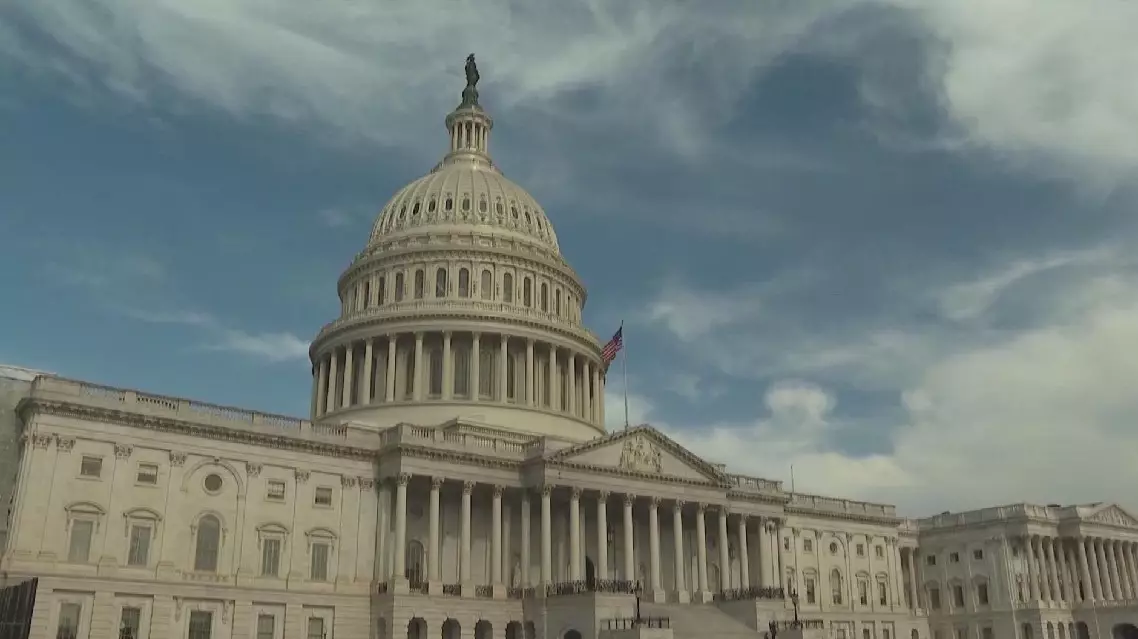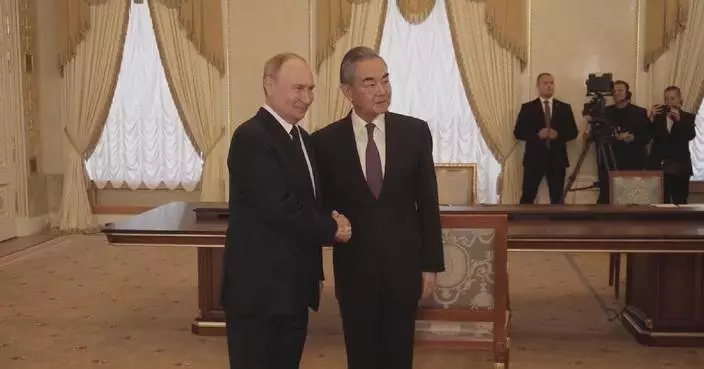The successful launch of the first Shanghai International Cruise Festival in early August has spurred a surge in new regional and global cruise routes by Chinese companies.
The newly released cruise routes cover many popular tourist destinations such as Hong Kong, Japan, South Korea, Vietnam and the Philippines. Some airlines have also maximized on this opportunity by launching a "plane plus cruise ticket" package for tourists.
"It is a very novel experience. It is our first cruise travel. It was mostly about helping my child gain some experience and learn more about different ways of traveling," said a visitor surnamed Yang.
"I find that it's very, very important to actually give this access of what's like the core of Chinese culture here. We as foreigners, it's very interesting for us to immerse in ancient Chinese culture," said Gosia, a tourist from Poland.
The International Cruise Festival, scheduled from Aug 10 to 31, opened with dazzling fireworks and drone light show. After the opening of the festival, Shanghai also launched a variety of activities to attract tourists from around the world, including food markets, ship model displays, cultural and creative products, and simulated driving experience.
"It is the first Shanghai International Cruise Festival. We have invited global cruise companies to promote their global routes, so that Shanghai will become a national and global launch place for new international tourism routes to attract more global consumers," said Zhang Jie, deputy director of Shanghai Municipal Commission of Commerce.
To make cruise entry and exit procedures more convenient, the Shanghai Exit-Entry Administration Bureau and Shanghai inspection checkpoints have adopted a range of measures focusing on facilitating clearance for foreign cruise passengers. International visitors only need to show the passing code to pass through customs quickly.
"I think it's a very good thing, it makes traveling a lot easier, especially for people from Europe that want to see China, you know, without having to go and get a visa in the embassy. You can come, you have the 144 hours and you can explore that sort of region. And it was good for us because we had four days and it gave lots of time for us to see Shanghai," said Colum Murphy, a tourist from Ireland.

China’s cruise travel expands global routes to attract more int'l customers
The U.S. Congress has taken up a series of bills targeting China -- a move that is aimed at empowering the next president to get off to a running start in what some U.S. political circles view as a strategic rivalry, said analysts.
The U.S. House of Representatives has scheduled up to 28 bills specifically targeting China, with fast-track approval within the so-called "China week."
According to Zhao Hai, research fellow at the Institute of World Economics and Politics, the bills aim to hype up Americans' fear of China as a supposed threat in the run-up to a tight presidential election between former President Donald Trump and current Vice President Kamala Harris.
"At this particular point they would like to insert China as a topic in this presidential campaign and debate, trying to show that Republicans continue to be the toughest party against China and trying to point fingers against Democrats as weak," he said.
The legislation would inevitably hand the country's next president a hot potato as Beijing warns the bills, if passed, "will cause serious interference to China-US relations, damage the U.S.' own interests, image and credibility."
To counter what Republican lawmakers claim as military, economic and ideological threat, the legislation is set to reduce U.S. reliance on highly competitive Chinese biotech companies, and even ban Chinese EVs and drones.
While these bills may be drafted easily enough, they may not be so simple to pass into law due to the real mutual interests the two countries share, Zhao said.
"They have to limit the scope of those legislations. Because once you expand the scope and cover many areas, there's bound to be resistance and also there's a lot of interests that will get involved. So, these legislators know exactly how intertwined China-U.S. interests are and how hard it is to decouple the economies between the two sides," said the researcher.
Among the key pieces of legislation, a Hong Kong-related bill would allow the U.S. president to terminate Hong Kong's representative offices in the U.S on the grounds that Hong Kong lacks autonomy from Beijing -- a premise that Lawrence Ma Yan-kwok, barrister and chairman of Hong Kong Legal Exchange Foundation, said is faulty at its core.
The city has an independent administration and legislation, he said, and Beijing has granted Hong Kong a high degree of autonomy that’s guaranteed by the Basic Law.
"Hong Kong has an absolutely independent judiciary. It has its own financial system and currency, the Hong Kong dollar. And Hong Kong is still a free port and there are no import duties or tariff are imposed on goods. So, the allegation by the U.S. government of Hong Kong lacking autonomy from Beijing is simply not true," Ma added.
Now, the U.S. has a trade surplus of more than 270 billion U.S. dollars with Hong Kong during the past decade - the largest among its global trading partners. If the bill clears the Senate, more than 1,200 American companies in Hong Kong could be affected.
"If the United States government insists on undermining the mutually beneficial relations between Hong Kong and the United States, it will ultimately harm the interests of the United States and its companies," he explained.
Since the Trump era, U.S.-China trade war cost a peak loss of 245,000 U.S. jobs with virtually no benefit to the American economy. The high-stake legislation would further decouple the two major economies while snow-balling the political risks, analysts said.

Slew of anti-China bills in US congress come as desperate campaign ploy: experts










